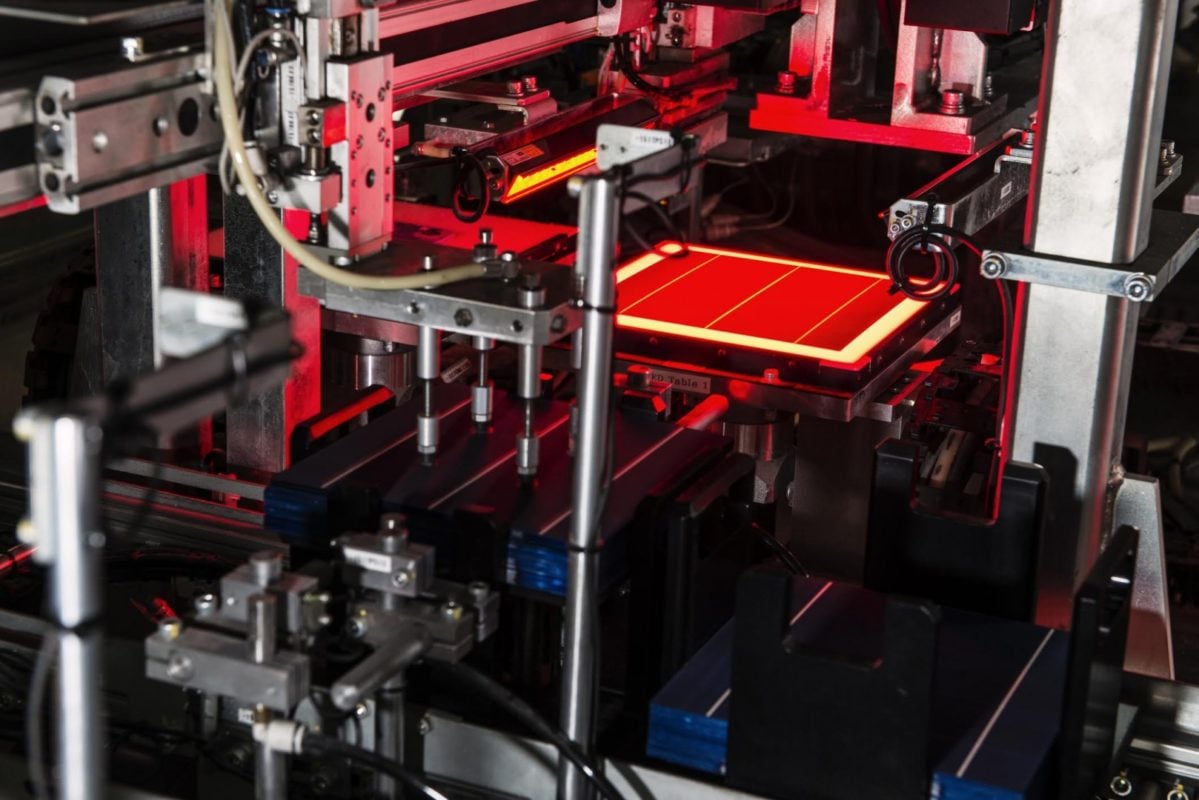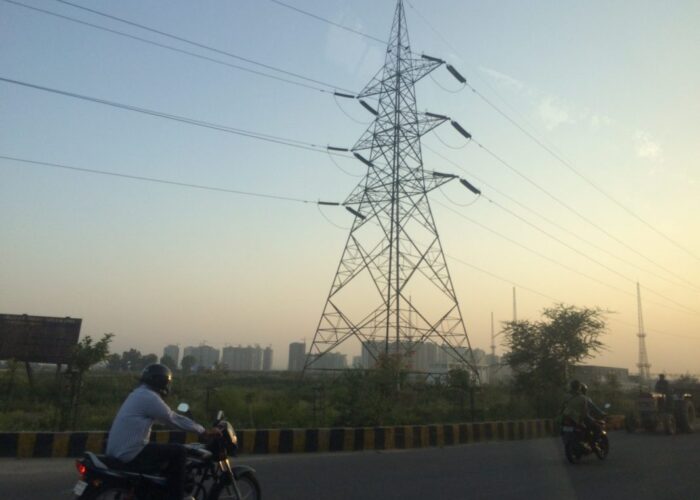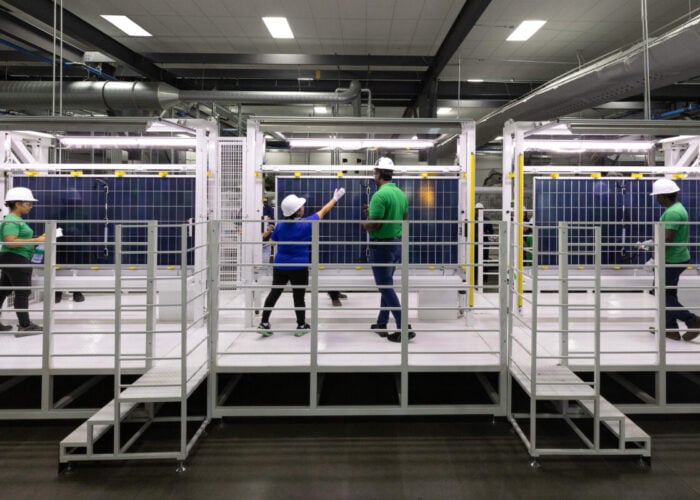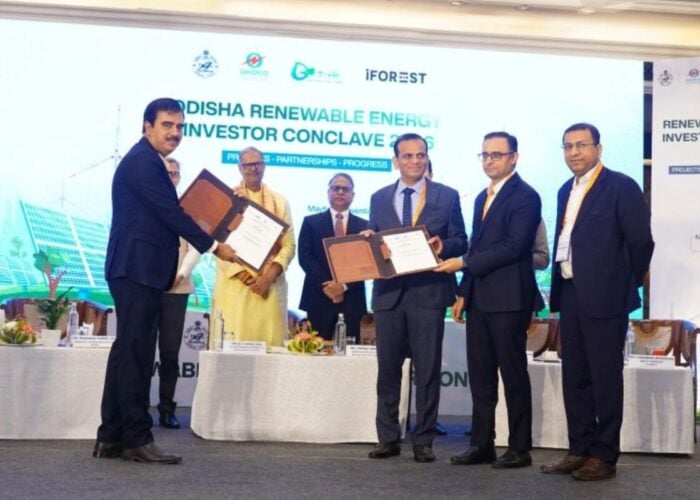
Two senior figures from Indian solar manufacturing companies have said government proposals to boost the country’s domestic PV industry through duties on imported equipment do not go far enough.
In a webinar today to discuss recently announced proposals on basic customs duties (BCDs), Hitesh Doshi, MD and chairman of Waaree Group, and Ramesh Nair, CEO of Adani Solar, said duties of 50% would be needed to stimulate significant investment in India’s domestic manufacturing.
Try Premium for just $1
- Full premium access for the first month at only $1
- Converts to an annual rate after 30 days unless cancelled
- Cancel anytime during the trial period
Premium Benefits
- Expert industry analysis and interviews
- Digital access to PV Tech Power journal
- Exclusive event discounts
Or get the full Premium subscription right away
Or continue reading this article for free
Last week, India’s minister for new and renewable energy, RK Singh, said the government was considering a BCD of 20-25% on module imports from August this year, rising to 40% next year. The proposed tariff would replace the safeguard duty of 15% that has been in place to stimulate domestic manufacturing, but is due to expire this month without having substantially fulfilled its original aim.
In today’s webinar, organised by consultancy firm JMK Research & Analytics, Waaree’s Doshi said Indian manufacturers have been calling for a 50% duty, arguing that 25% is insufficient to counter “dumping” by Chinese firms that he said in the past few months alone had led to a 20-25% fall in the price of modules imported from China.
“When it comes to the cost of the end user, with a 20-25% price reduction in the past four or five months [of Chines modules], a 25% duty is not going to have much impact. Only a 50% duty is going to help; if [the duties] are going to be 25% a lot of other support is going to be required… to get investment into manufacturing,” Doshi said.
Ramesh Nair, CEO of Adani Solar, said the proposed BCD was a “welcome move” that showed the Indian government’s intention to provide long-term protection for the country’s solar manufacturers after the failure of the safeguard duty to stimulate investment. “The safeguard duty has not had the desired effect on the industry,” Nair said. “So, in spite of the safeguard duty, 80-90% of the panels being used in the country are being imported.”
But he agreed with Doshi’s view that the 25% duty was “definitely not enough” and was “miniscule” at today’s panel prices, arguing that Chinese manufacturers would be able to sidestep such a small duty by lowering prices.
He too said a 50% BCD would be needed to provide Indian manufacturers with the protection they need, though he did concede the government was opting for a phased approach to introducing duties to protect the interests of developers.
But he added: “If you want to incentivise manufacturing, then you obviously need to have higher duties and a stable policy, so the manufacturers know once they’ve come in, they’ve invested money in the technology, they have a market which is based on fair play and not by dumping from China.”
Offering a developer perspective, Parang Sharma, CEO of O2 Power, underlined the need for a phased introduction of duties on imports.
“On paper the capacity of manufacturing in India is huge, but really there are only very select module manufacturers who are bankable and whose modules can be purchased,” Sharma said.
“The biggest concern we as a developer have is that if tomorrow we move to a regime where we can’t buy any imported modules … because there is a higher BCD of 40%, then is India going to have enough modules of good quality to cater for industry requirements? That’s the challenge we have and that’s why the proposed shift from import to domestic modules needs to be in a phased manner.
“What we as developers are closely watching is what is the progress on the ground of the expansion of module capacity. And we all know down the line we know there is hardly any addition expected in the near time – maybe cell there will be some, but ingots, wafers we all will continue importing from the outside.”






